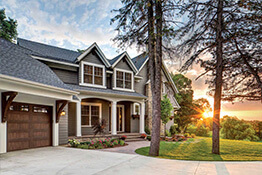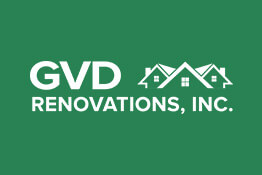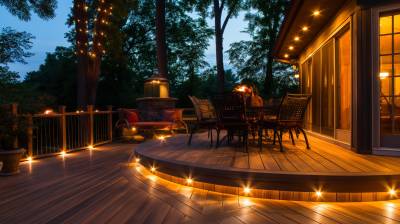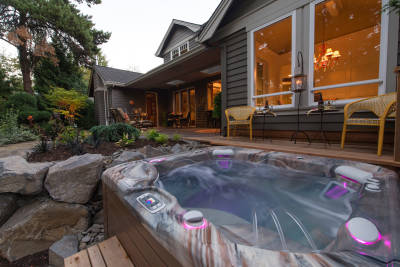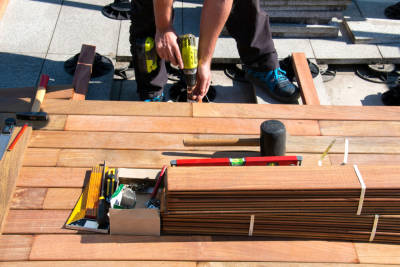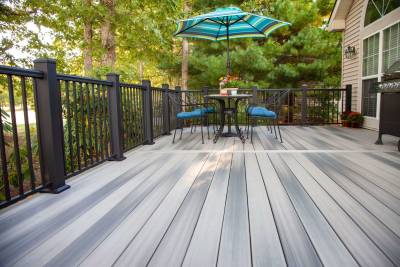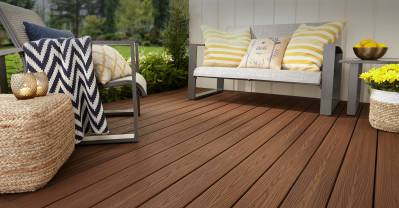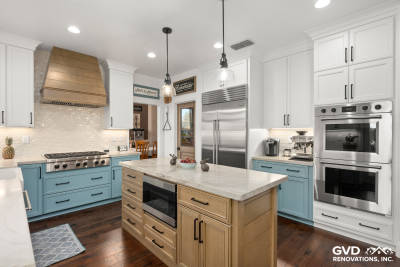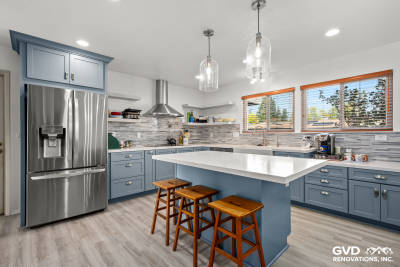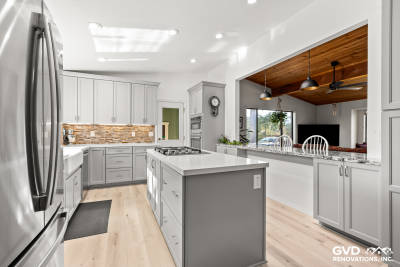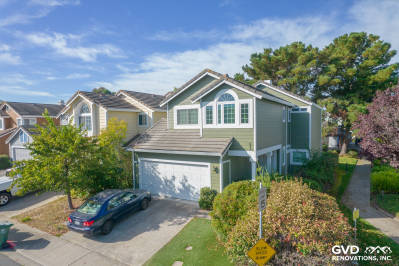Introduction to Composite Decking: Trex, Fiberon, and TimberTech
Selecting the best composite decking material for your outdoor space can be a daunting task. Among the top contenders in the market are Trex, Fiberon, and TimberTech. These industry leaders have been in the game for a while, each offering unique and innovative products. However, deciding between these three can be tricky, hence this comprehensive guide to help you make an informed decision.
Trex Composite Decking
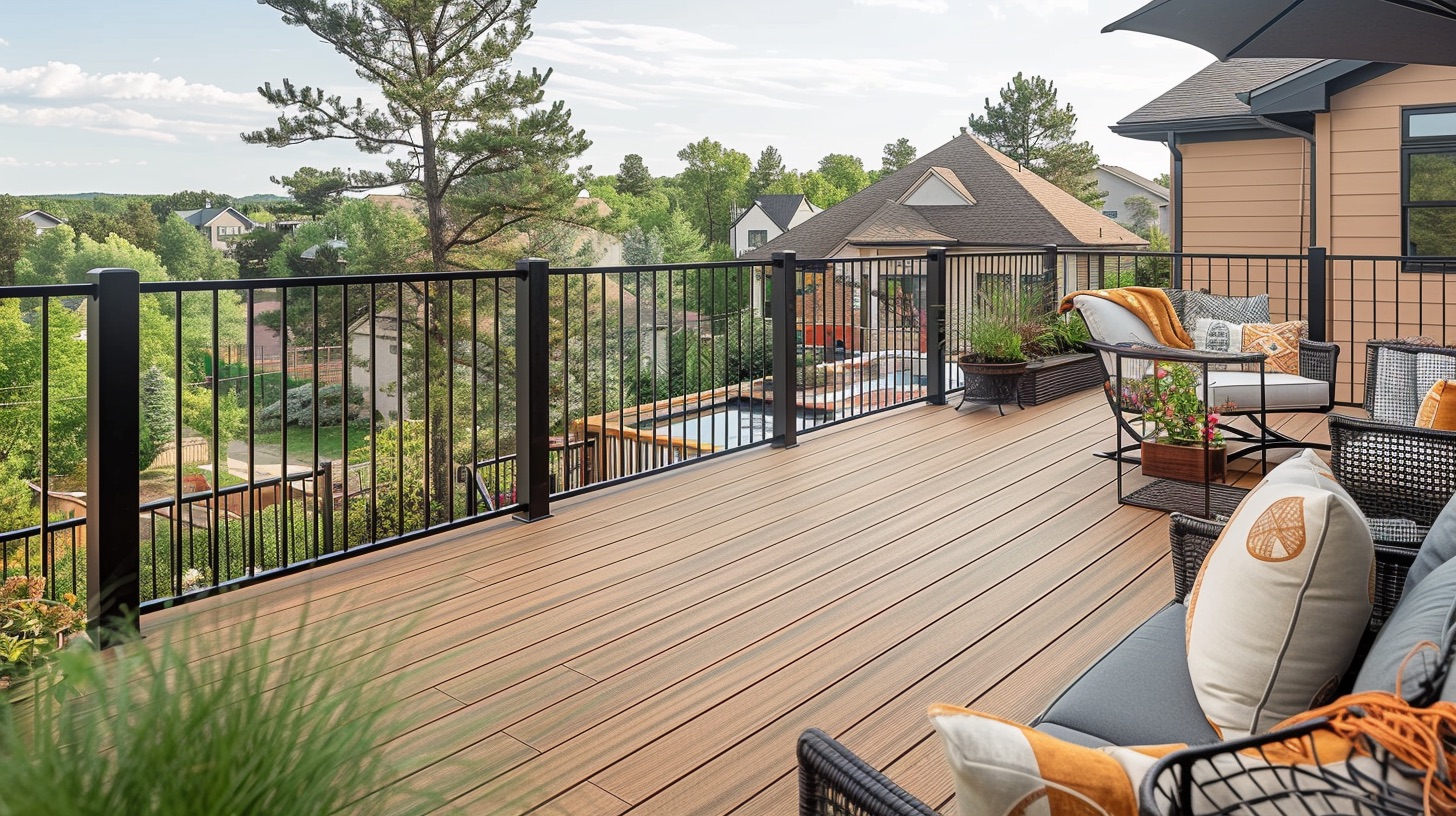
Trex takes the lead as one of the most recognizable brands in composite decking. Their products feature recycled and reclaimed materials, contributing to their eco-friendly reputation.
Standout Features of Trex
-
High-performance shell: Trex decking is shielded with a high-performance shell that protects the board from severe weather, heavy foot traffic, and harmful UV light. This shell coverage ensures longevity and superior resistance to fading and staining.
-
Sustainability: Trex offers a wide range of products made from 95% recycled materials, thereby promoting environmental conservation.
-
Warranty: Trex offers a 25-year Limited Residential Warranty, protecting homeowners from material defects in workmanship and materials, and against termite and rot damage.
Fiberon Composite Decking
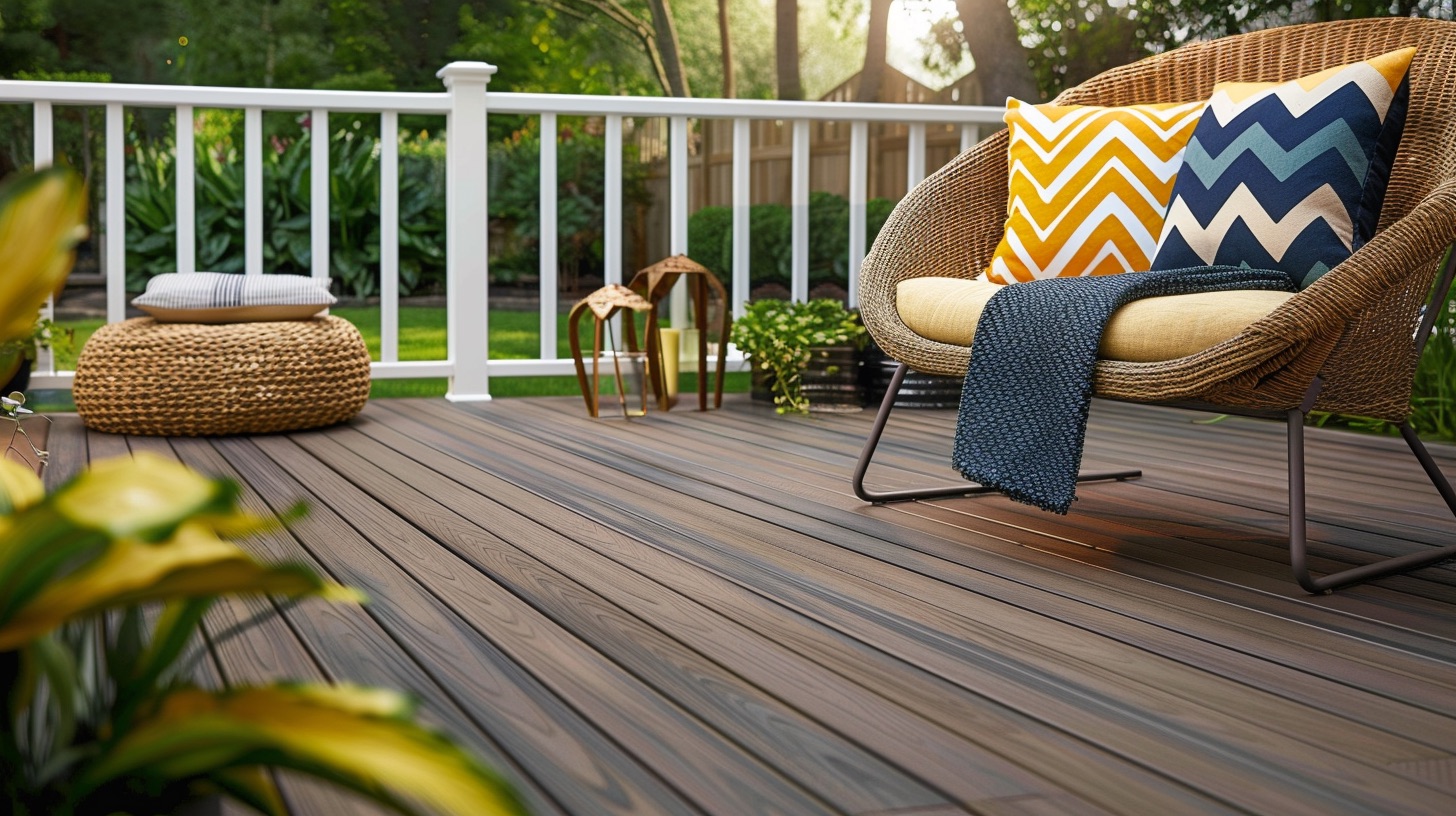
Fiberon is another top-tier brand, offering multichromatic and highly realistic wood tones. With Fiberon, you'll get designs that mimic traditional painted wood.
Standout Features of Fiberon
-
50-year warranty: Fiberon products come with a 50-year stain and fade warranty, one of the most robust in the industry. The warranty also covers performance, guaranteeing resistance against splitting, splintering, rotting, and cracking.
-
Sustainability: Much like Trex, Fiberon utilizes 95% recycled materials in their decking products.
-
Innovation: Fiberon is known for its pioneering streak in introducing capped composite decking to the market.
TimberTech Composite Decking
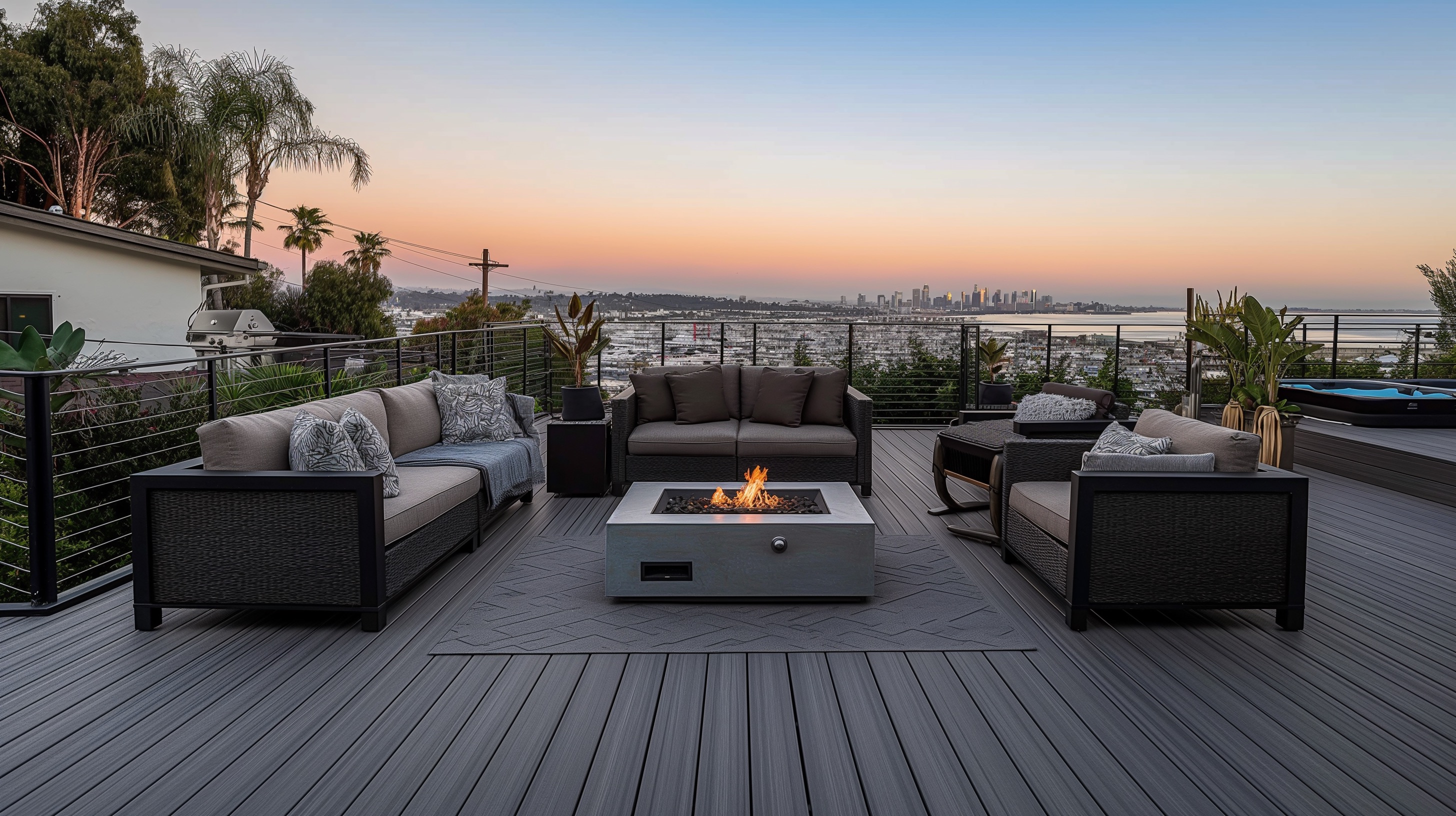
TimberTech offers a combination of aesthetics, durability, and performance. They provide an array of colors and grains to match the existing aesthetic of your exterior space.
Standout Features of TimberTech
-
Color and Material Variety: TimberTech offers the widest range of color options in the market. Furthermore, they provide a multitude of material options such as capped polymer and capped composite.
-
30-year Warranty: TimberTech decking products come with a 30-year Fade & Stain warranty. This is a considerable duration that speaks to the brand's confidence in the longevity and durability of their products.
-
Top Tech: TimberTech uses advanced surface protection and a sustainable design that makes their decks resistant to weather, UV, mold, and mildew.
Comparing Trex, Fiberon, and TimberTech
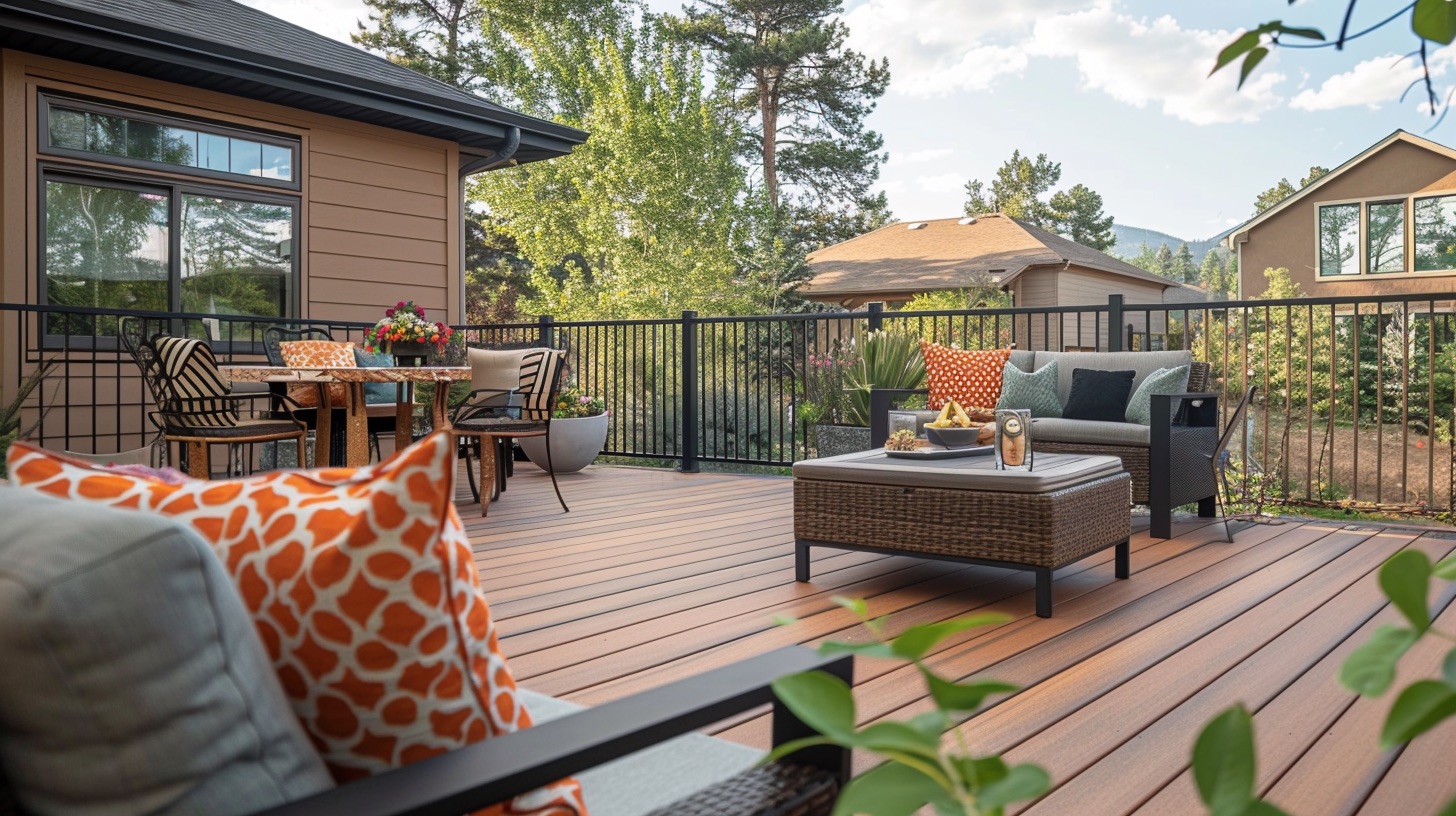
Choosing between Trex, Fiberon, and TimberTech can be influenced by several factors, including cost, aesthetic preference, and maintenance needs.
Cost
Among the three, Fiberon tends to be the most cost-effective, followed by Trex. However, it's important to note that the prices of composite decking materials vary depending on design complexity, market conditions, and installation costs.
Aesthetics
In terms of appearance, TimberTech takes the lead with their extensive range of color options. However, it all comes down to personal preferences and the particular design you are seeking for your outdoor space.
Maintenance
All three brands offer low-maintenance composite decking. Due to their protective shell covering, you don't have to worry about regular staining, sanding, or sealing. However, an occasional washing for cleanliness and to maintain the deck's appearance is recommended.
Features vary from one brand to another. Take into consideration your needs, preferences, and budget. Remember that making the right choice will ensure that your outdoor space is not only beautiful, but also functional and durable. Trex, Fiberon, and TimberTech all have strengths worth considering for your composite decking needs.
Frequently Asked Questions about Trex, Fiberon and TimberTech
What are the main differences between Trex, Fiberon and TimberTech?
Although all three brands offer high-quality, long-lasting decking materials, they differ in several ways. Trex tends to be more eco-friendly, as it's made from 95% recycled materials. Fiberon, on the other hand, is known for its realistic wood grain patterns and proprietary permanent finish. TimberTech, meanwhile, boasts strong scratch and stain resistance with its capped polymer and capped composite decking lines.
How does the cost of Trex, Fiberon and TimberTech compare?
All three brands offer various pricing options, depending on the product lines. Generally, Trex decking can be a bit more expensive, given its high durability and eco-friendliness. Fiberon offers a middle-of-the-road option in terms of cost. TimberTech, however, usually falls on the higher end of the pricing spectrum due to its superior durability and wide range of color and style options.
Which one is more environmentally friendly - Trex, Fiberon or TimberTech?
Trex is known for being the most environmentally friendly brand among these three. It is made from 95% recycled materials, which helps to reduce waste in landfills. That said, both Fiberon and TimberTech also incorporate sustainable practices in their manufacturing processes and offer some products made from recycled materials.
How does the warranty compare between Trex, Fiberon, and TimberTech?
Trex, Fiberon, and TimberTech all back their products with industry-leading warranties. Trex provides a 25-year limited residential warranty and a 10-year commercial warranty. Fiberon's warranties vary by product but can cover up to 50-years for residential use and 10-years commercially. TimberTech offers a limited 30-year warranty for residential projects and a 10-year limited warranty for commercial applications.
Which decking materials require less maintenance: Trex, Fiberon, or TimberTech?
Trex, Fiberon, and TimberTech utilize synthetic materials which make them relatively low-maintenance compared to traditional wood decks. However, TimberTech’s high-end decking lines with fully capped and sealed surfaces can be lower maintenance, requiring less frequent cleaning and staining.
Are Trex, Fiberon and TimberTech slip-resistant?
Yes, all three brands offer slip-resistant decking options. That said, slip-resistance can depend on the specific product line and texture. For example, TimberTech’s premium product lines offer superior slip-resistance, especially when the deck is wet.
Do Trex, Fiberon and TimberTech offer various color options?
Indeed, all three brands offer a variety of color options to match different aesthetic preferences. Trex is well-known for its deep, vibrant colors. Fiberon has a wide spectrum of color choices, ranging from exotic hardwood hues to traditional earth tones. TimberTech offers the broadest color selection, including light and dark tones, multi-chromatic colors, and natural wood-like shades.
Can I install Trex, Fiberon or TimberTech decks myself?
Whilst it is possible to install these decks yourself, it's recommended to hire a professional. This ensures the installation is done correctly and maximizes the life of your deck. Improper installation can result in voided warranties and potential damage.
How does the UV resistance of Trex, Fiberon, and TimberTech compare?
All three brands offer UV-resistant decking materials. However, the degree of UV-resistance can vary depending on the specific product line. In general, TimberTech’s capped composite and capped polymer decking lines offer excellent UV protection, reducing the potential for color fading and other sun-related damages.
Pros and Cons: Trex vs Fiberon vs TimberTech
Pros of Trex Decking
-
Durability: Trex decking is highly durable. It is resistant to damage from insects, mold, mildew, and harsh weather conditions. This makes it a long-lasting option for your deck.
-
Eco-Friendly: Trex decks are made from 95% recycled materials, making them an eco-friendly choice for homeowners.
-
Low-Maintenance: With Trex, you don't have to worry about staining or sealing your deck. A simple wash with soap and water is sufficient.
-
Variety of Colors: Trex offers a wide range of colors and finishes, providing more options for homeowners.
Cons of Trex Decking
-
High Initial Cost: The initial cost of Trex decking can be high, potentially deterring potential users. However, its low maintenance and durability can make it a wise long-term investment.
-
May Get Hot: Trex material can get hot under direct sunlight, making it uncomfortable for bare feet during summer.
-
Possible Fading: While Trex is fade-resistant, some homeowners have reported slight fading after several years of use.
Pros of Fiberon Decking
-
Looks Like Real Wood: Fiberon decking has a realistic wood grain, so it looks very much like real wood, enhancing the beauty of any outdoor space.
-
Resistant to Stains and Fading: Fiberon decks are coated with a protective finish that resists staining and fading, making it a low-maintenance option.
-
Warranty: Fiberon offers lengthy warranties, providing peace of mind to homeowners.
Cons of Fiberon Decking
-
Less Eco-friendly: Compared to Trex, Fiberon uses less recycled materials in its deck boards, which isn’t as green an option.
-
Limited Colors: Fiberon offers fewer color options compared to Trex.
-
High Cost: Like Trex, the initial cost for Fiberon can be high, making it a potential drawback for some homeowners.
Pros of TimberTech Decking
-
Highly Durable: TimberTech is acclaimed for its durability. It doesn't warp, rot, or break easily, and it's resistant to mold, mildew, pests, and water.
-
Capped Design: TimberTech decks have a protective 'cap' on three sides for added durability and resistance to damage and fading.
-
Varied Aesthetics: TimberTech offers a range of colors and finishes so users can customize their decking to match their style.
Cons of TimberTech Decking
-
Expensive: TimberTech is one of the most expensive composite decking options. This initial cost may be a barrier for some users.
-
Can be Slippery: Some users have reported that TimberTech decking can be slippery when wet, which could be a safety concern.
Summary
All three brands, Trex vs Fiberon vs TimberTech, offer high-quality composite decking materials, but their products and offerings differ in various aspects. For instance, Trex is recognized for its environmentally-friendly products and long warranty period, whereas Fiberon provides a great range of styles and colors at a competitive price. On the other hand, TimberTech boasts of reliable durability and impressive scratch resistance.
Comparing Trex vs Fiberon vs TimberTech, the choice ultimately depends on the homeowners' unique needs, budget, and preferences. If you prioritize eco-friendly and low-maintenance options, perhaps Trex will be your choice. But if you're after aesthetics and affordability, Fiberon could win your heart. If durability and resistance to wear are your prime considerations, TimberTech might suit you best.
While all Trex vs Fiberon vs TimberTech have their strengths and shortcomings, they all ensure high-quality composite decks that are a staple in modern outdoor living spaces. Choosing between the three is a matter of considering the factors most important to you. In the end, regardless of your choice, you are guaranteed a beautiful and long-lasting deck to enhance your home's outdoor space.
About GVD Renovations
Welcome to GVD Renovations, hailing from the beautiful city of Sacramento, CA. We're a group of seasoned professionals with a special knack for home remodeling, siding, and window installation. Our team prides itself on combining efficiency, craftsmanship, and reliability to deliver exceptional results for every project. Whether you're looking for a refreshing kitchen makeover or a stunning exterior siding revamp, GVD Renovations is your one-stop solution!
Tags: decking comparison, Trex vs Fiberon, TimberTech decking,
